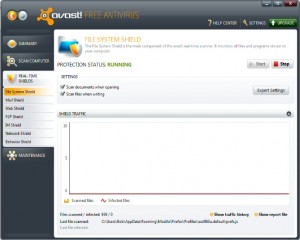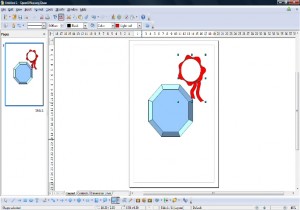Keeping your computer safe should be one of your major concerns. We’ll start with a quick check list:
-
Make sure you run an anti-virus programme and keep it up-to-date.
- Do not click on links in emails even if you think you know who it’s from.
- Do not download software off the internet unless you are absolutely sure about the site.
- Do not trust anyone who telephones you about your computer unless it is a phone call you have arranged.
- Change your passwords regularly.
- If your friends start getting emails from you which you haven’t sent your computer may have a virus. If you can’t deal this yourself then get someone you trust to look at your computer for you.
Keeping your computer safe: Anti Virus Programmes.
There is no need to pay for an expensive anti virus programme. Most of the larger anti-virus vendors offer a free version of their software which is automatically kept up-to-date. We recommend the free version of AVAST.
Keeping your computer safe: Links in Emails.
Scammers like to send you emails with things like “Your Pay Pal information needs updating” or “Someone has tried to log into your bank account”. Then they will give you a link which supposedly goes to Pay Pal or your bank or where-ever. In fact it doesn’t, it goes to the scammers site which is a copy of the original, except when you put in your username and password it will be collected by the scammer. Normally you should just ignore these types of email but if you are worried or concerned then visit the site BY USING YOUR BOOKMARKS or by TYPING THE ADDRESS IN (the address you already know NOT the address given in the email). That way you can check your account safely.
Whilst we’re on the subject of emails then try not to open attachments in email unless it is something you are expecting… avoid attachments like “Look at this funny picture” or “Here’s the document I promised you”.
Software off the Internet.
There are lots of software on the internet but they don’t all help with keeping your computer safe. You should whenever possible only install and use downloaded programmes which have been recommended and from sites which you can trust. Never try and hack or crack a programme which you should be paying for. Cracks and hacks are well-known for installing other stuff on your computer.
Keeping your computer safe: Phone Calls.
There has been a spate of phone calls recently claiming to be from Microsoft Support or something similar and telling people there is something wrong with their computer. They will then try and get you to install software which will give them complete control over your computer. You need to be realistic, Microsoft is not going to give telephone support to you, neither is anyone else (without you calling first and spending a fortune on premium telephone calls). If you do get one of these calls you would be best just hanging up.
Change your passwords regularly.
I know its a pain but you should change your passwords regularly. Pick words and number combinations which wouldn’t be obvious but you can remember well.
All of this will help with Keeping your Computer Safe. It takes work. Computers don’t just look after themselves.
Authored By: Bob Prentice.

 Make sure you run an anti-virus programme and keep it up-to-date.
Make sure you run an anti-virus programme and keep it up-to-date.


